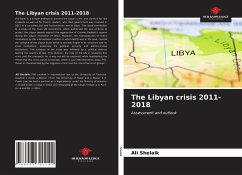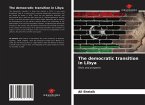The book is a simple attempt to present the Libyan crisis and clarify it for law students as well as for French readers, who their government was involved in 2011 in a so-called just and humanitarian war in Libya. This book contributes to a study of the main UN resolutions, which authorized the use of force to protect the Libyan people against the aggression of Colonel Gaddafi's regime during the Libyan revolution of 2011. However, the transgression of these resolutions by the international coalition in which NATO was in the lead, caused the collapse of the Libyan state which is already fragile in its structure and its state institutions, especially the political, security and administrative institutions. The collapse of the state was followed by a political division tearing the country in two. This division, the role of the UN in resolving this crisis and the prospects for a way out will be explored, while highlighting the threat that this crisis poses to Europe, which is just 300 kilometres away. This threat is characterized by the migration crisis and the rise of terrorist groups.
Bitte wählen Sie Ihr Anliegen aus.
Rechnungen
Retourenschein anfordern
Bestellstatus
Storno








